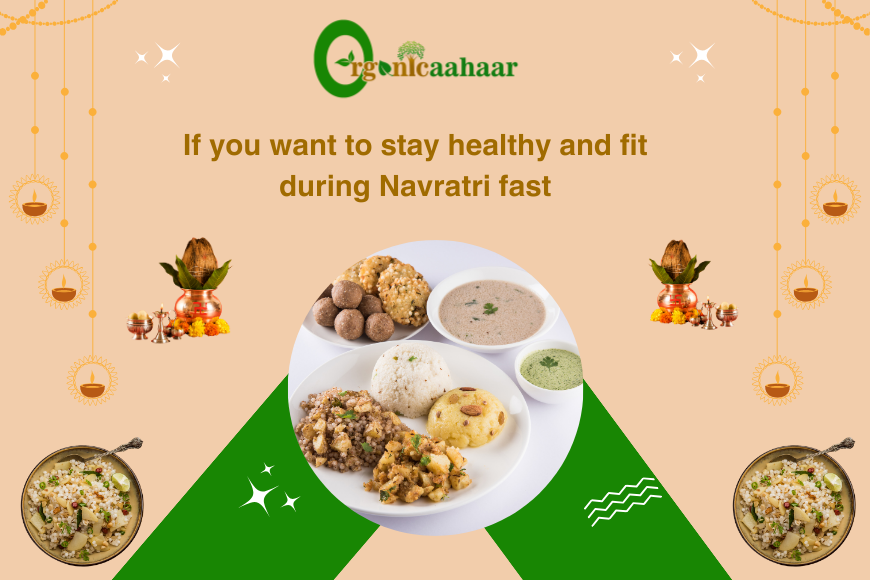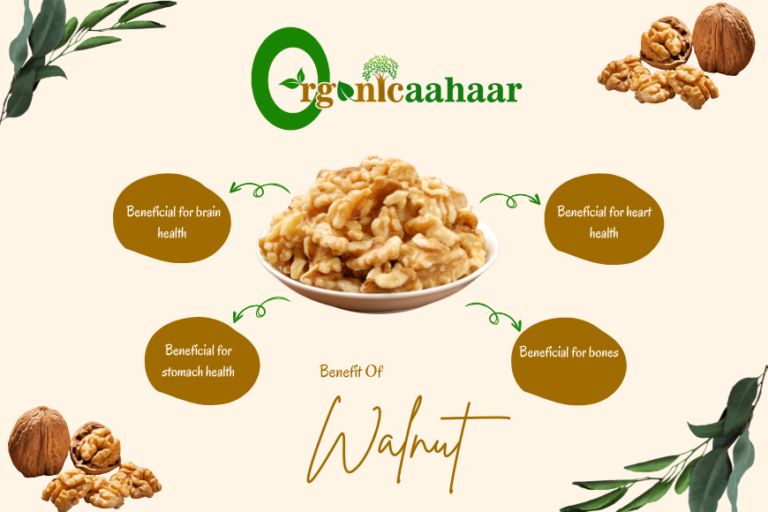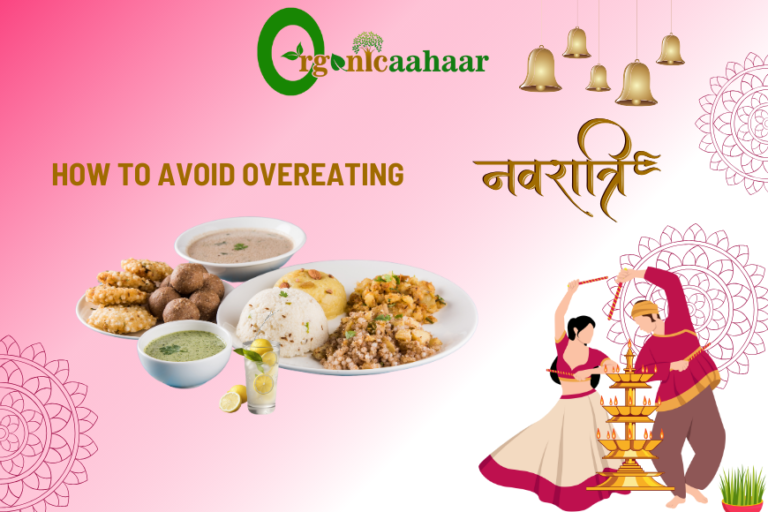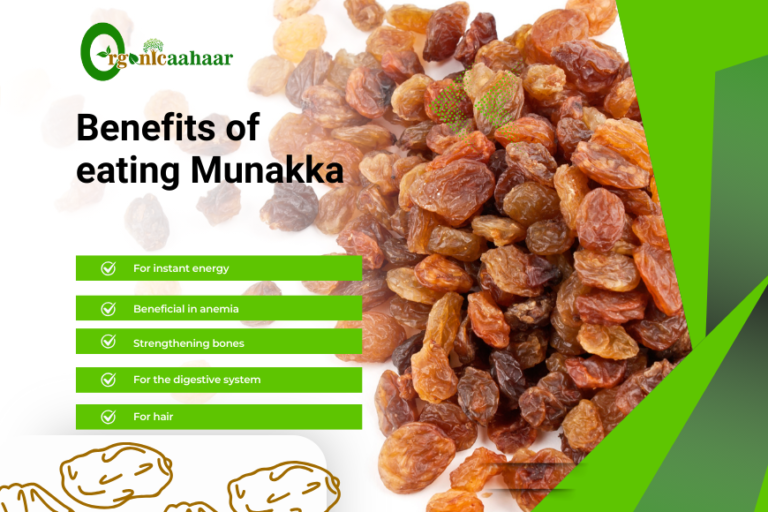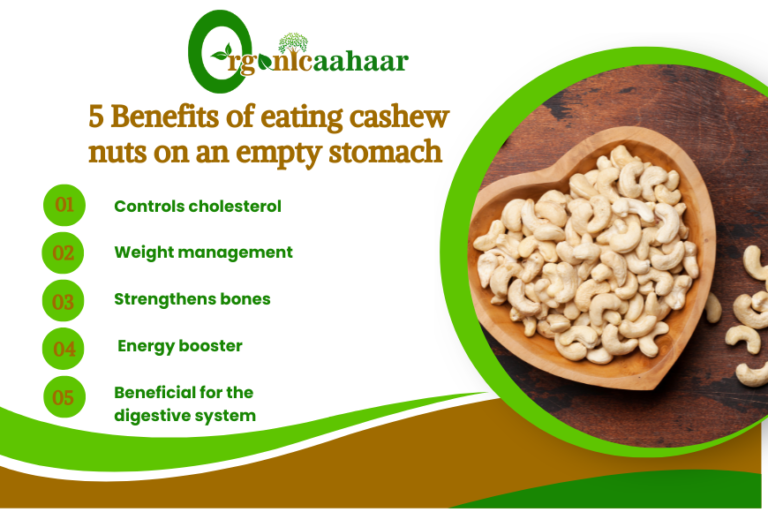There is a rule of taking fruit diet during Navratri fast. Which keeps the body healthy and reduces extra calories. To keep your body healthy during Navratri, definitely follow the diet plan. During the fast, plenty of nutrients are needed to maintain energy in the body.
Many changes come in our lifestyle and eating habits during the nine days of Navratri. Getting up early in the morning, cleaning, worshiping and eating fruits, potatoes, Shahrakandi water chestnut and buckwheat flour are included in the diet. By adopting some tips during the fast, you can feed your family healthy, tasty and nutritious food. If you also want that you do not fall ill during the fast, then it is also necessary to maintain nutrition along with healthy and tasty food. So follow this diet plan for the nine days of Navratri fast.
Planning a diet for proper nutrition during fasting
During Navratri, both our mind and body become healthy. Weakness is felt during fasting. For which, the right diet plan should be followed for proper nutrition during fasting. Avoid eating fried food during fasting and take a balanced diet according to the right diet plan.
Plan your meals during the fast and drink 9 to 10 glasses of water throughout the day. By planning a diet for proper nutrition during fasting, you can avoid the risk of many lifestyle diseases.
9-day diet plan to stay healthy and fit during Navratri fasting
1. Take dry fruits soaked in water
For light hunger during Navratri, you can consume soaked dry fruits or coconut water. To increase the energy level in the body, you can eat 2-3 pieces of walnuts, cashews, raisins, almonds etc. But these should not be consumed more than 2-3 nuts. Eating dry fruits does not cause deficiency of nutrients in the body.
2. Eat roasted makhana
You can include makhana in food items to stay healthy and fit during Navratri fast. During the fast, many dishes made from makhana are made or makhana should be included in the diet by roasting it.
3. Use of Desi Ghee
In the diet plan of nine days of Navratri, you can use desi ghee instead of refined ghee. Because eating desi ghee provides good fat, vitamin A and E. Consumption of desi ghee keeps the digestive system healthy and muscles strong.
4. Avoid sugar and salt in food
Some people believe that salt and sugar should be avoided during fasting, but by doing so the person feels weakness and fatigue. To overcome this problem, you can use zero sugar and zero salt. Like- eat honey, jaggery and sweet fruits.
5. Do not eat sour fruits on an empty stomach
During the fast, reduce the consumption of sour fruits like oranges and grapes on an empty stomach and increase the consumption of bananas or apples. Because consuming too much citric fruits on an empty stomach increases the problem of acidity. To avoid any digestive problem, you can take soup of green vegetables.
6. Take care of liquids
During fasting, liquids should be consumed in appropriate quantity to keep the digestive system healthy and reduce hunger. You should regularly consume lemonade, coconut water, lassi and low-fat milk. Consuming liquids keeps the body hydrated.
7. Use of homemade sweets
During Navratri, consume homemade desi ghee barfi, pumpkin kheer and fruit curd instead of market sweets. Sweets available in the market contain harmful chemicals and cleaning agents which are harmful to the body.
8. Eat black pepper instead of red chilli
For fasting, consume black pepper instead of red chilli in food. Red chilli enhances the taste of food but also causes ulcers. Consumption of black pepper strengthens the digestive system. And it helps to avoid low blood pressure.
9. Strengthening the immune system
During the fast, the number of white blood cells increases, which strengthens the immunity. Which increases the ability to fight diseases.
Conclusion
You can make a diet plan to stay healthy and fit during Navratri fast. In nine days, the mind and body are purified and made healthy. In nine days, efforts are made to calm the mind and free the body from disorders.

